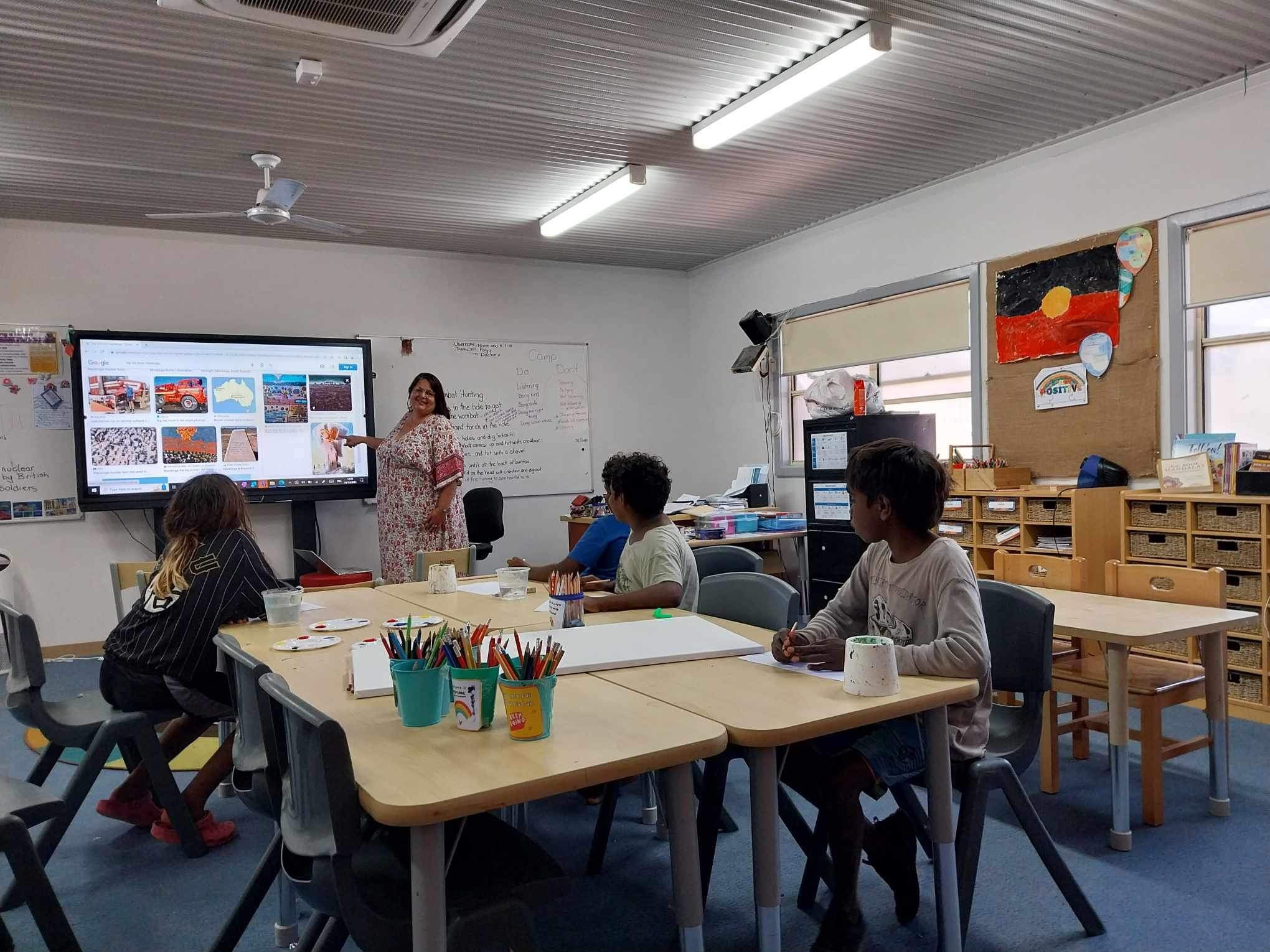
Amanda Greenhill’s (Bed(PrR-7),BA ’22) journey into the world of education is testament to the transformative power of pursuing one’s passions, even later in life.
“I actually started my teaching degree 20 years ago,” says Amanda, “when my twins, who are now nearly 25 years old, were only two years old.”
Life had other plans for her until, inspired by her children now embarking on their own university degrees, she decided to return to university and fulfill her lifelong dream of becoming an educator.
Education has always been a calling for Amanda who says, “I love little minds, and kids’ passion for learning.”
Her decision to teach Aboriginal children in remote South Australia was inspired by one of her lecturers, also a Flinders graduate, Dr Steve Corrie (BEd(UP/LS) ’97).
“Steve gave this inspiring talk which got me looking into teaching on the Anangu Pitjantjatjara Yankunytjatjara (APY) lands. Just that one brief encounter changed my whole outlook on things,” says Amanda.
As soon as she graduated, Amanda began teaching in remote communities in North-West South Australia. Teaching primary school children in APY Anangu Schools has come with its unique challenges, but she has found the overall experience incredibly rewarding.
“I create personalised plans for Aboriginal, EALD (English as an additional language or dialect), and disabled students, ensuring that their education meets their specific needs. You may have students who are moving between communities, so those personalised plans are really important,” Says Amanda.
“My Indigenous studies at Flinders set me up with a lot of knowledge to take into the classroom, and I have a support educator, and he’s just amazing.
“He’s a young man in his 30s, his daughter is in my class, and he loves to teach the kids. I generally teach in English, but if there’s something the kids aren’t understanding he’ll translate for me. We actually learn a lot from each other.”
Amanda loves the sense of community she’s found through teaching in remote locations.
“I remember there was a Sunday recently,” she says, “and I was trying to help the kids by painting some leaves for a class project. I had some music on. Some senior girls and a younger girl from the community wandered past. They asked what I was doing, and I said to them, ‘Just painting leaves. Do you want to join me?’ And they’re like, ‘Yeah, we’re bored.'”
“I went to get more paint,” she continues, “and by the time I came back with the paint they had collected more leaves and whatnot, and there were 12 kids waiting for me, wanting to paint.”
With her music playing in the background, the public square had been turned into an impromptu art studio. “I’d also baked a cake for my class the night before so I went and got that too,” Amanda says.
“And there we were, me and all these kids painting leaves, listening to music and eating cake. It was a great way to spend a Sunday afternoon.”
To those considering working in remote or regional communities, Amanda says, “Don’t think about it. Just do it.”
She urges aspiring teachers to take the leap, experience the unique challenges and rewards of remote teaching, and make a meaningful impact on the lives of their students.
Amanda hopes her story inspires early-career educators seeking to leave their mark on the world of education.
“It’s not just about the classroom teaching,” she says.
Her experiences prove that teaching is also about building connections, fostering creativity, and creating lasting memories with students, even in the most remote of settings.

